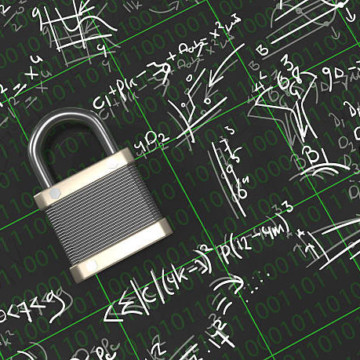

Year 11 Specialist Mathematics Units 1 and 2
Overview
In Specialist Mathematics Units 1 and 2, you will study mathematics in depth. The course emphasis is on concepts, skills and processes related to mathematical structure, modelling, problem solving and reasoning. In addition, you will investigate a broad range of mathematical applications. You will also develop an in-depth background for further studies in mathematics and mathematics-related fields that are utilised in for further studies in areas of study at the tertiary level including Mathematics, Engineering, Finance, Science, Data Science and Computer Science.
Who is it for?
This subject is for students who enjoy applying their mathematical skillset to solve diverse problems and investigating the building blocks of different mathematical systems.
Specialist maths focuses on building students skillsets to problem solve through applying theoretical skillsets to a variety of real world and conceptual applications.
Specialist Mathematics unit 1 and 2 builds upon concepts introduced throughout Mathematical Methods Units 1 and 2 and introduces novel methods of investigating the mathematical relationships found throughout the curriculum.
What do you do?
You will access the Virtual School Victoria course via VSV Online to learn through videos, written material and interactive quizzes. Each week you will complete a weekly submission task to consolidate the skills you have learned.
There are weekly online lessons, which are also recorded for those students who cannot attend.
In Unit 1 you will study:
- proof in mathematics
- graph theory
- sequences and series
- combinatorics
- matrices, logic and algorithms through pseudo code.
In Unit 2 you will study:
- trigonometry
- complex numbers
- functions, relations and graphs
- vectors
- probability and statistics.
What skills do you need?
Not only do students need good foundations in arithmetic, algebra and logical reasoning from Years 7 – 10 Mathematics, but also good time management and personal organisation skills.
*Specialist Mathematics Units 1 and 2 are designed to be completed concurrently with Mathematical Methods Units 1 and 2.
What skills do you develop?
The subject develops a range of skills including:
- Problem solving
- Arithmetic, algebra, and graphing skills
- Writing mathematical proofs in number theory, geometry, vectors etc.
- Interpreting Algorithms in pseudo code.
Requirements
CAS Technology:
For this study, you need access to a VCAA-approved CAS technology. VSV course notes are written using the TI-Nspire CAS and Casio ClassPad calculators. The textbook also contains instructions for TI-Nspire CAS and Casio ClassPad calculators. However, any of the listed VCAA-approved CAS technologies can be used
Further information on VCAA-approved CAS technologies is available on their website
If buying a new calculator, it is highly recommended to purchase a TI-Nspire CX CAS.
*Please note VSV currently can only support CAS calculator exams not CAS software exams.
You will need the following materials:
- ruler
- protractor
- exercise book for your workings
- Graph book
Things to think about
Specialist Mathematics is a very challenging, yet ultimately rewarding subject. Many of our students say that Specialist Mathematics is their favourite subject.
You will need to develop a weekly routine to ensure you spend sufficient time to understand the concepts, to complete the required work and stay up-to-date. It is expected that you spend at least 5 hours per week on this subject.
Things you can do now
Take a look at the Specialist Mathematics page on the VCAA website. Familiarise yourself with the 2024 Study Design and assessment criteria for Specialist Mathematics. This site also offers useful support material and samples of past exams.
Specialist Maths introduced some coding elements in 2023, so be sure to familiarise yourself with the area of studies outline if this is something that you have not encountered in your studies so far.
Go to this page on the VCAA website for more information about this subject.
Things to have a look at
Recommended Textbook:
Cambridge Specialist Mathematics VCE Unit 1 and 2 (2nd Edition)
What’s so special about e? (Euler’s number)
3Blue1Brown – What’s so special about Euler’s number e?
This video investigates the Mathematical Constant e and provides a good foundation for learning its various applications.
The normal distribution
3Blue1Brown – Why π is in the normal distribution (beyond integral tricks)
This video investigates the normal distribution and why pi is in its equation.
Vectors, what even are they?
3Blue1Brown – Vectors, what even are they?
This is a great visual introduction to the area of study of vectors.